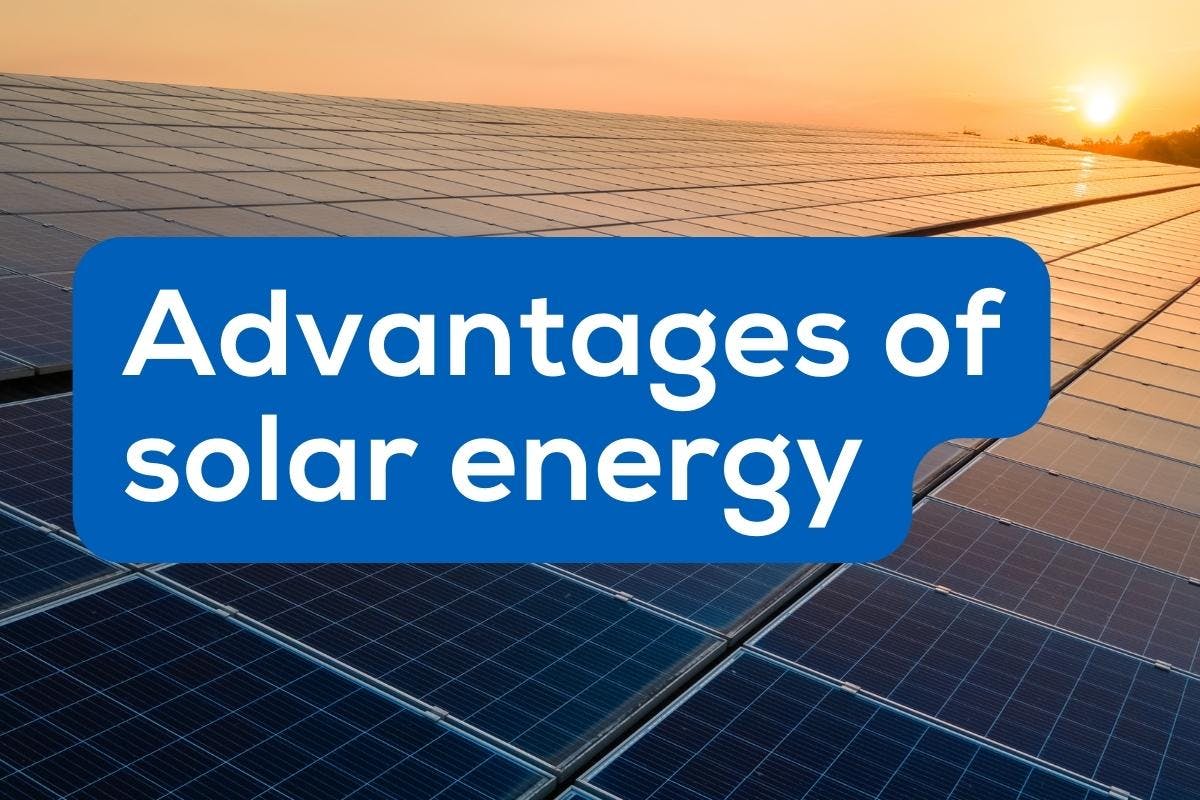The Advantages of Solar Energy: Why You Need To Make the Switch Today
As the world progressively focuses on sustainable energy services, the advantages of solar energy come to be extra pronounced. Transitioning to solar energy not only uses considerable economic cost savings with decreased electrical power costs and readily available tax obligation motivations, yet it also plays a vital duty in mitigating ecological impact by reducing carbon impacts. In addition, the assimilation of solar modern technology can boost home values, making homes much more appealing in a competitive market. The implications of these improvements extend past mere expense financial savings; they raise significant questions about power self-reliance and long-term sustainability. What does this mean for your future?
Financial Savings and Incentives
The economic advantages of solar energy are engaging for property owners and organizations alike. By investing in solar power systems, homeowner can significantly minimize their electrical energy costs. Once installed, photovoltaic panels harness power from the sun, allowing customers to generate their very own electrical power and therefore decrease dependence on grid-supplied power, which is subject to varying rates.
Along with immediate savings, different motivations promote the adoption of solar power. Federal tax credit histories, such as the Financial Investment Tax Obligation Credit Report (ITC), permit homeowners to deduct a significant percentage of the installation expenses from their federal taxes. Lots of states and city governments additionally supply discounts, gives, or tax obligation exemptions that even more improve monetary feasibility.
Over time, these monetary benefits can lead to a significant return on financial investment, making solar energy not just an environmentally liable option but additionally an economically audio one. As understanding of these advantages expands, much more people and services are considering solar energy solutions.
Ecological Impact
Taking advantage of solar energy substantially decreases carbon exhausts and other pollutants connected with typical power sources. Solar power systems generate electrical energy without producing unsafe by-products, therefore adding to cleaner air and a decrease in greenhouse gases. This transition is vital in combating climate change, as the energy field is a major factor to global carbon discharges.
In addition, solar power alleviates the ecological degradation commonly associated with fossil gas extraction and intake. Simply Solar Illinois. The mining and drilling processes for oil, coal, and all-natural gas can bring about habitat damage, dirt disintegration, and water contamination. On the other hand, solar power uses the bountiful source of sunshine, minimizing environmental interruption
The prevalent fostering of solar technology can also promote biodiversity by reducing dependence on power resources that contribute to environment loss and air pollution. Solar installations can be placed on rooftops and previously disrupted land, thus preserving natural landscapes and reducing land usage problems.

Power Independence
Attaining energy self-reliance is a significant advantage of solar energy, allowing nations and areas to decrease their dependence on imported nonrenewable fuel sources. By utilizing the sunlight's power, nations can generate their own electrical power, thus lessening susceptability to global energy market variations. This self-sufficiency not just boosts nationwide safety and security yet also supports neighborhood economic situations, as decreased reliance on international power resources can lead to lower energy expenses.
Solar power systems can be released at numerous scales, from domestic rooftops to big solar ranches, making it possible for areas to generate energy locally. This decentralization promotes durability versus power supply interruptions and all-natural calamities. Furthermore, investment in solar innovation promotes task development within regional economic climates, promoting development and supplying job opportunity in the sustainable energy industry.
Transitioning to solar power additionally adds to lasting methods, aligning with global objectives to battle environment modification. As communities spend in this renewable energy, they promote advancement and technological developments that further boost power independence. Overall, the change to solar energy equips communities, decreases geopolitical dangers, and leads the method for a lasting energy future, making it a vital factor to consider for both individuals and policymakers alike.

Increased Home Value
Buying solar energy not just enhances energy independence but also considerably boosts building worth. Residences equipped with solar energy systems are significantly eye-catching to possible customers, as they supply lowered utility costs and a smaller carbon impact. Researches have actually revealed that buildings with photovoltaic panels can fetch a premium on the property market, with some estimates recommending a boost of as much as 4% in value.

Furthermore, solar power systems frequently result in reduce overall upkeep expenses, which can be a solid marketing point for possible homeowners. As the need for eco-friendly housing continues to rise, purchasing solar energy can produce lasting monetary benefits, guaranteeing that your residential property stays not only relevant but additionally valuable in a changing financial her response landscape. The decision to switch is not simply concerning power cost savings; it's a strategic investment in your property's future.
Breakthroughs in Solar Modern Technology

Transforming the landscape of renewable resource, breakthroughs in solar technology have dramatically enhanced the effectiveness and availability of solar energy systems. Innovations in solar (PV) cells have actually brought about the development of bifacial panels, which capture sunlight on both sides, consequently raising energy output. Additionally, the development of thin-film solar batteries has actually made solar modern technology lighter and more flexible, enabling combination into a broader variety of surface areas, consisting of lorries and structure products.
Power storage space options have actually likewise proceeded dramatically, with lithium-ion batteries coming to be extra reliable and cost-efficient. This permits home owners and organizations to save excess power produced during the day for use at night or during durations of reduced sunshine, consequently optimizing power self-reliance. Innovations in clever solar innovation, such as AI-driven energy monitoring systems, make it possible for individuals to optimize their power usage and decrease waste.
The expanding pattern of community solar tasks has actually made solar power more obtainable to those unable to install panels on their properties. As modern technology continues to evolve, the future of solar energy promises to be extra effective, lasting, and integrated right into our lives, making the button to solar a much more viable alternative than ever before.
Verdict
In addition, solar power boosts energy self-reliance and boosts building worth, making it a sensible financial investment. important source With recurring innovations in solar modern technology, the possibility to harness solar power has actually never been more available, promoting a sustainable future for all.